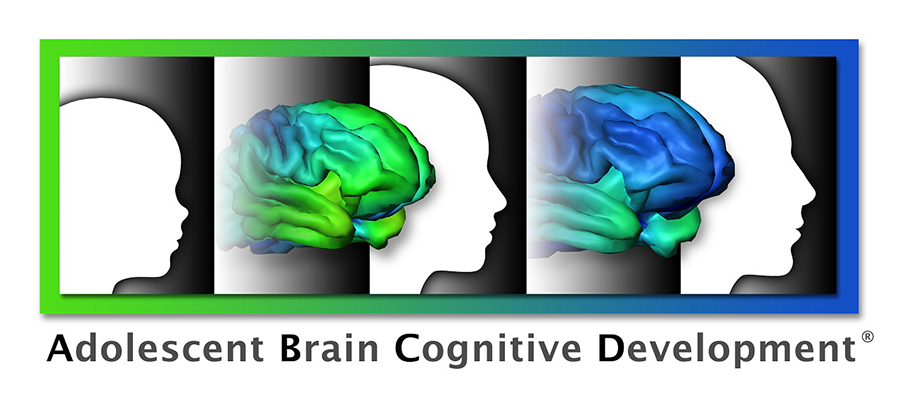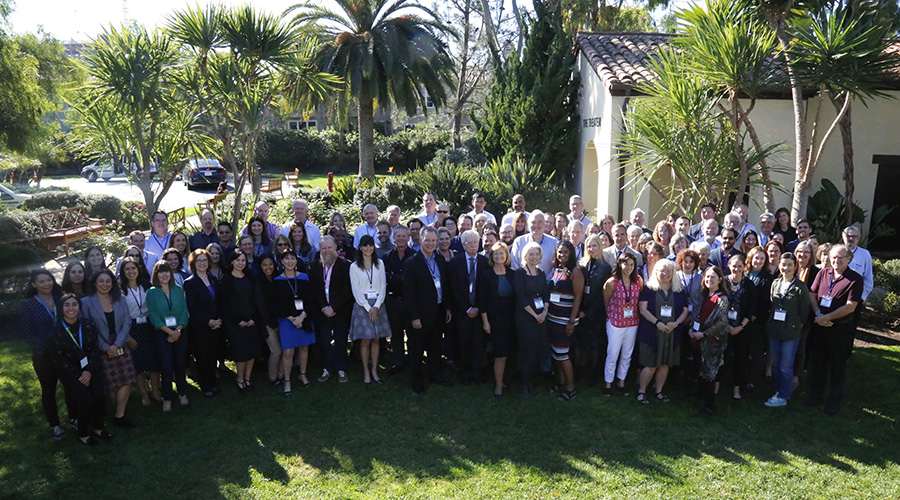Landmark ABCD Study of Adolescent Brain Renewed for Seven Years
Led by UC San Diego, the NIH-supported, multi-institute study is generating robust data about how young brains mature
By:
- Inga Kiderra
- Michelle Franklin
Media Contact:
- Inga Kiderra - ikiderra@ucsd.edu
- Michelle Franklin - m1franklin@ucsd.edu
- Scott LaFee - slafee@ucsd.edu
Published Date
By:
- Inga Kiderra
- Michelle Franklin
Share This:
Article Content

Photo by iStock_jacoblund
The National Institutes of Health has renewed its commitment to the Adolescent Brain Cognitive Development (ABCD) Study, the largest long-term study of brain development and child health ever conducted in the United States, with nearly $290 million of new funding for seven years to research institutions around the country.
Launched in 2015, with central components and leadership from the University of California San Diego, the ABCD Study is following nearly 12,000 children, including more than 2,000 who are twins or triplets, for at least 10 years starting at ages 9 to 10. The researchers track the children’s biological and behavioral development through adolescence into young adulthood.
The awards to UC San Diego total just over $60 million. With this seven-year renewal, the ABCD Study’s UC San Diego-based centers – the ABCD Coordinating Center and the Data Analysis, Informatics & Resource Center – will continue to provide critical infrastructure, communication, training, and scientific leadership for the nationwide 21-site study of adolescents. More than 700 children are being studied at UC San Diego’s research site.
The study aims to learn how things happening in the lives of young people strengthen and protect them, or make them more vulnerable, as they negotiate the challenges they face, and how who they are as individuals sometimes changes their responses to these challenges. “One of the questions we want to answer is why different young people seem to respond differently when facing apparently similar difficulties and decisions.” said Coordinating Center Co-director Terry Jernigan, a professor of Cognitive Science, Psychiatry and Radiology at UC San Diego.

The study surveys a wide range of factors that could explain these differences, documenting exposures to drugs (including nicotine, alcohol, and marijuana), screen-time activities, sleep patterns, engagement in sports and arts, among other variables, that may affect brain development, cognitive skills, mental health, and many other outcomes. The young participants undergo interviews and behavioral assessments once or twice a year, with physiological measures (e.g., blood pressure, cholesterol) of cardiovascular health and neuroimaging of brain structure and function every two years.
The ABCD Study, like many other research projects, is adapting to the circumstances of COVID-19. It is also adding the pandemic as a facet of the study.
Associate Director of the Coordinating Center and Professor of Psychiatry Susan Tapert said, “Right now we are adding a new study component to ABCD to more deeply characterize the many ways that the COVID-19 pandemic may be impacting our young participants, their families, and their communities. Since we have been studying the youth for several years already, this may allow us to better understand any changes that we see in future years, and how the pandemic may have influenced their health, mental health, cognitive, and socio-economic outcomes.”
While the project is designed to answer long-held questions about the development of the teenage brain through the entire period of adolescence and beyond, the study has already released two sets of anonymized high-quality baseline data to the broader research community via the National Institute of Mental Health Data Archive to enable both ABCD investigators and non-ABCD researchers to pursue their own research questions. The data – so far more than 140 terabytes – include basic participant demographics, assessments of physical and mental health, substance use, culture and environment, and neurocognition, tabulated structural and functional neuroimaging data, and minimally processed brain images. The comprehensive dataset, which is disaggregated by sex, racial/ethnic group, and socioeconomic status, allows researchers to address numerous questions that may ultimately inform health decisions and policies related to education, nutrition, physical activity, sleep, and prevention of substance use and mental illness.
Professor of Neurosciences, Radiology, Psychiatry, and Cognitive Science Anders Dale, Director of the Data Analysis, Informatics, and Resources Center, describes the ABCD Study as “driving the field to develop new and more intelligent technologies for analyzing complex, high-dimensional datasets, and to share these immediately with other scientists.”
Co-director of the Coordinating Center and Vice Chancellor for Research at UC San Diego Sandra A. Brown, added, “The most important thing about this, of course, is that it brings together the entire scientific community interested in adolescence and brain development to accelerate the pace of science in this area.”

ABCD Study annual meeting 2019.
So far, 32 research papers have been published using these data, with 11 from investigators not involved in the ABCD study. These analyses have led to a better understanding of the association between certain traits and experiences in adolescence (e.g., sleep, body mass index, family conflict, screen time) and brain physiology and other outcomes, such as cognitive ability and mental illness (e.g., depression and suicide). While most of these research projects have only looked at associations at a single point in time, data that will be collected over time will allow scientists to examine the developmental trajectories of individuals and how they are affected by many of the factors mentioned above—including genetics.
Additional data will be released this summer that includes the six month and one-year follow up for the full cohort and other interim data. The data will be made available through the National Institute of Mental Health (NIMH) Data Archive, which can be accessed by researchers who obtain a free NIMH Data Archive account.
“The next phase of the ABCD study will help us understand the effects of substance use, as well as environmental, social, genetic, and other biological factors on the developing adolescent brain,” said Nora D. Volkow, M.D., director of the National Institute on Drug Abuse (NIDA) at the National Institutes of Health. “Since the participants are now in their vulnerable middle school years or are beginning high school, this is a critical time to learn more about what enhances or disrupts a young person’s life trajectory.”
The ABCD Study was initiated by the Collaborative Research on Addiction at NIH (CRAN), a consortium of institutes comprising NIDA, the National Institute on Alcohol Abuse and Alcoholism and the National Cancer Institute. There are also a number of other federal partners on the project.
Share This:
You May Also Like
UC San Diego is Strengthening U.S. Semiconductor Innovation and Workforce Development
Technology & EngineeringStay in the Know
Keep up with all the latest from UC San Diego. Subscribe to the newsletter today.



